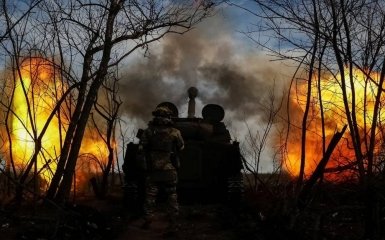The Kremlin is preparing the Russians for a new wave of escalation of the war against Ukraine and is trying to find a justification for a terrorist attack on Ukrainian energy.
Russia "forgets" to say about "SMO"
Increasingly, in the rhetoric of the Russian authorities, the war in Ukraine is called a "war" and not a "special military operation" as before.
The Center for Countering Disinformation (CCD) reports this.
Two years after the start of the full-scale invasion of Ukraine, the spokesman for the so-called Russian President Putin, Dmytry Peskov, "suddenly" declared that Russia was at war. That is, he used the same "forbidden" word for which an ordinary Russian risks being imprisoned.
The CCD explained that the enemy justifies the unprecedented Russian attack on energy facilities, which resulted in casualties among peaceful Ukrainians, by allegedly "punishing" Ukraine for attacks on oil refineries, disorder in the border areas of the Russian Federation, or for "excessive" trust in the West .
In this context, ru-propaganda constantly emphasises that "the path to negotiations is closed" supposedly because of Ukraine's position. However, the Russian Federation is not ready for negotiations and is only increasing its military power.
Rejecting the concept of "SMO", the enemy actually tries to "feed" its population the narrative of "holy war" and conducts informational preparation for increased mobilization. And also begins to prepare the Russians for an "inevitable clash with NATO."
Russia spread a fake about preparations for the dam's detonation before the attack on the Dnipro HPP
According to the CCD, even before the attack on the Dnipro HPP, Russian propaganda outlets began to spread information about the alleged preparations for the detonation of the dam by the Ukrainian special services.
For example, the Ukrainians themselves are going to blow up the dam during the spring flood, so that the number of victims from among the civilian population is as high as possible, CCD statement notes.
CCD emphasises that the enemy continues to sow panic with fakes about the dam's breach. This effect is being tried to be strengthened by the publication of materials regarding the blowing up of the Dnipro HPP dam by the Soviet Red Army and the army of the Third Reich during the retreat from Zaporizhzhia during the Second World War, which led to massive casualties among the civilian population.




